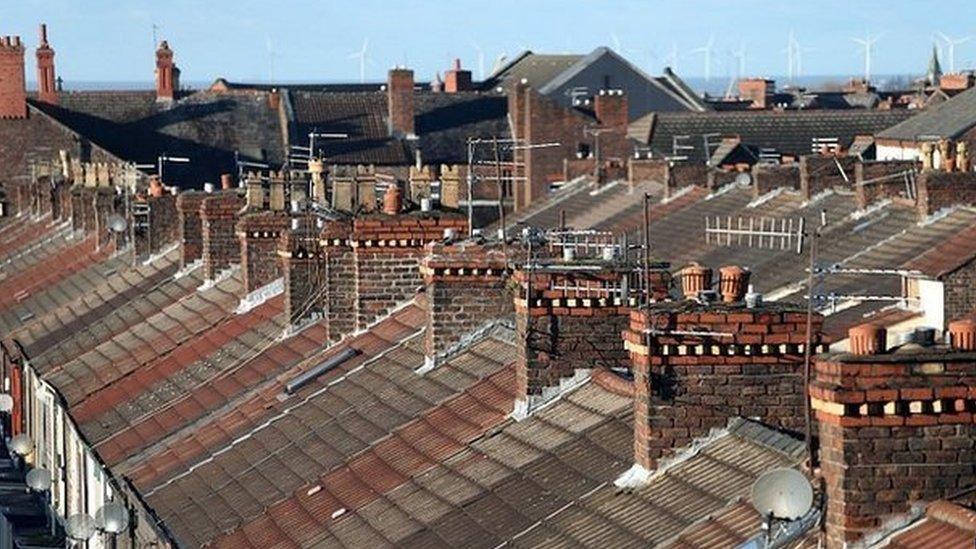Council looks to landlord licensing scheme to tackle rogues
- Published
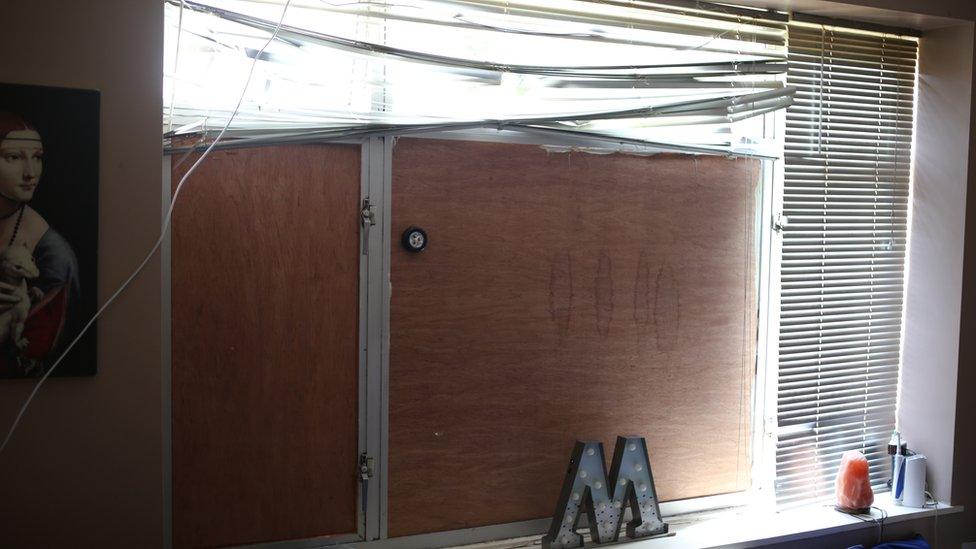
Lewisham council wants to licence houses of multiple occupation - like this one, which had a history of fly tipping, violence and anti-social behaviour - as well as other privately rented homes
Landlords could face increased costs and scrutiny as councils turn to a little-used licensing scheme to crack down on rogue operators.
Lewisham Council in London is set to ask for government permission to charge landlords up to £750 per property and inspect thousands of homes.
If approved, other authorities could follow Lewisham's lead.
The Residential Landlords Association, however, claimed the schemes could harm landlords without improving standards.
Councillor Paul Bell, Lewisham's cabinet member for housing, said the authority wanted to use selective licensing to reduce the gap between good and bad landlords from as early as February next year.
The licences would cost up to £750 for five years.
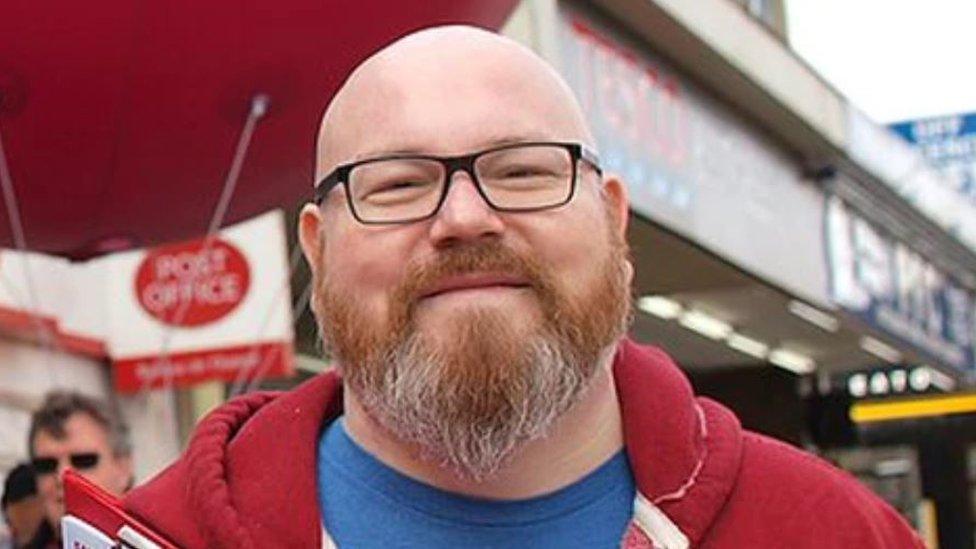
Lewisham's councillor Paul Bell said the scheme would make the entire rental sector better
Mr Bell said: "The vast majority of landlords are good, but we want to improve things for everyone.
"We want to crack down on rogue landlords, and reduce the gap between poor and good landlords.
"The entire [private rented] sector will improve, because people will have more respect for the sector."
Lewisham Council's own research showed about a quarter of homes in the borough were rented from private landlords, and pointed to a link with issues such as fly-tipping, anti-social behaviour and crime.
According to Mr Bell, the private rented sector has been the main cause of homelessness in a borough where 2,000 households are in temporary housing.
"That's not an effective use of public money, and it's not good for the people in that situation," he added.
The council ran a consultation asking people for their opinions on licensing for private landlords, with more than 1,800 responses.
It has since been waiting for a decision by Lewisham's cabinet on whether to push ahead and ask for government permission, and whether to roll out a different licensing scheme for all shared houses.

'We could have ended up on the streets through no fault of our own'

Christopher and his wife have since left London and bought their own home
Christopher Evans moved into a rented flat in London with his wife after they got married in 2010. At first it seemed perfect - a top floor flat with views of the River Wandle - but soon problems started emerging. The bedroom walls were black with damp, the roof leaked, faulty wiring made the kettle blow up and for months they couldn't use the kitchen sink because it leaked into the flat below.
Although he emailed repeatedly to ask for repairs, Mr Evans had to turn to the local council - which sent a surveyor - and Legal Aid that meant he could start court proceedings against his landlord.
Finances made it hard to think about moving house, he said. "We didn't have the deposit for another house - we were relying on getting this deposit back."
At one point the couple received an eviction notice and were worried about the "black mark" on their records if they tried to rent another home.
"We could have ended up on the streets through no fault of our own - because we complained about getting electrocuted by the kettle," he said.
"It needs regulation, and not self-regulation"
The couple moved out in 2013 but he remembers the strain it put them under.
"It could really bring people down - it wasn't very nice at all. With the amount of issues and correspondence, you want to quit your job and do it full time.
"It affects your state of mind - you can't concentrate at work. It can really have a knock-on effect on people's lives."

The rules around selective licensing changed in 2015, meaning councils needed government permission if they wanted licensing to cover more than 20% of their area, or more than 20% of their rented homes.
Since then, Barking and Dagenham has been the only English council to get permission for a wall-to-wall licensing scheme.
Others, like Newham, brought in borough-wide schemes before 2015 but now exclude some areas, while Liverpool has a pre-2015 borough-wide licensing scheme but its five-year term will run out soon.
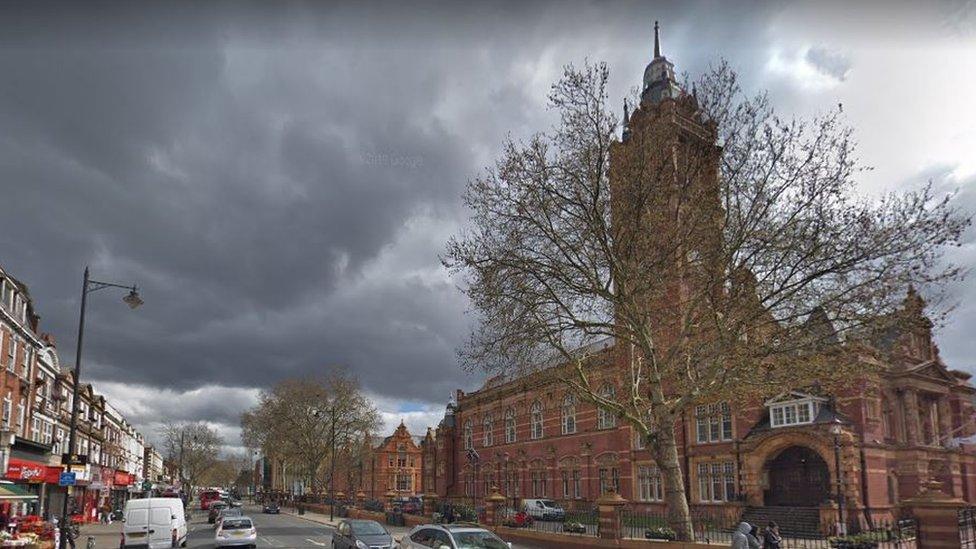
Newham introduced selective licensing in 2015 but now excludes some areas
Russell Moffatt was Newham Council's service head when it ran borough-wide landlord licensing, and said there were obvious benefits to the scheme.
"Without question it worked. It was like night and day," he said.
"Before, we could barely prosecute any landlords - I'd say maybe 10 a year. Once we had it, it was 250 a year."
According to Mr Moffatt, tracking down unlicensed homes often led the council to landlords who would be taken to court for other offences.
"I don't think we prosecuted a single person just for not licensing," he said.
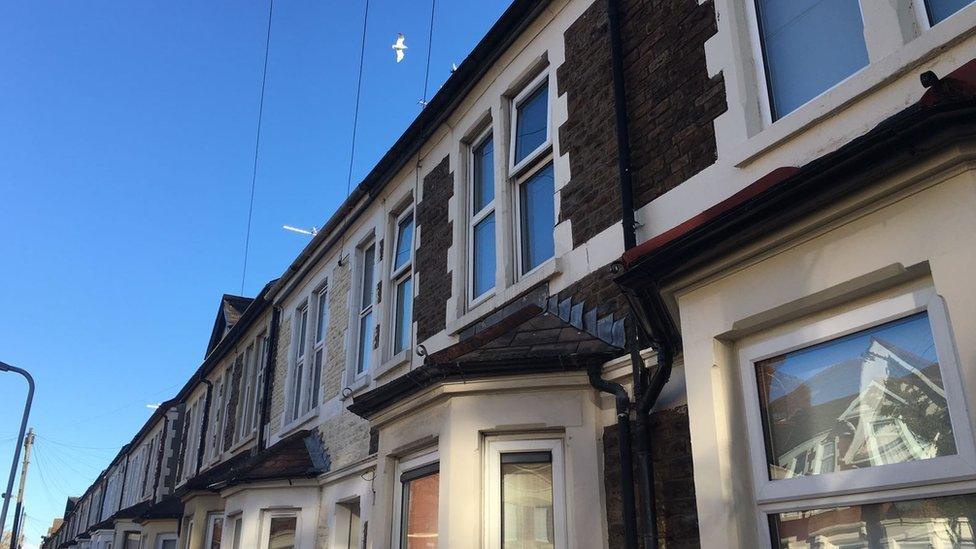
There are fears increased regulation could force some landlords out of business
His view, however, was not shared by trade body the Residential Landlords Association, which argued across-the-board licensing did not work.
The organisation's policy manager John Stewart said: "Licensing can be successful if it is small-scale and intended for a specific set of problems, with transparency and clarity about its objectives and outcomes, and funding put in place to ensure it is properly run and enforced.
"We don't deny there's poor property and management processes in the private rented sector, and we want those operators forced out, but there's very little evidence that selective licensing does that."
His organisation wanted to see "co-regulation" schemes brought in where landlords voluntarily signed up to a professional body and code of practice.
He said selective licensing would not have much impact on conditions unless it was properly resourced and enforced, which he believed was unlikely, and could drive some landlords out altogether.
"Some may try to switch their properties to other things like short-term letting, and some may look to leave the sector because of the cumulative effect of this and tax changes."
Housing charity Shelter believes too many tenants suffer at the hands of poor landlords, and said landlord licensing could be a useful tool for councils, if they could be enforced properly.
Chief executive Polly Neate said: "They're little use if councils don't have the resources to then crack down on poor conditions because of government budget cuts. So to ensure councils have all the tools they need to tackle poor housing in their area, the government must provide them with the proper funds to do so."

Of the 10 English councils with the highest proportion of privately rented homes, seven are in London.
London Councils represents all 33 local authorities in the capital, and its leaders said they believed councils should not have to rely on government permission for large licensing areas.
Councillor Darren Rodwell, London Councils' executive member for housing and planning, said boroughs urgently needed stronger powers over the fast-growing private rental sector but selective licensing could be hugely valuable when it came to tackling poor-quality housing and landlords who did not look after their tenants.
"The government should do away with the bureaucratic burden of requiring councils to gain the Secretary of State's permission before starting a selective licensing scheme," he said.
"Boroughs are clearly much better placed to understand conditions in the local private rental sector and to assess the benefits of implementing selective licensing.
"Ministers must cut this needless red tape and let London boroughs get on with the job of setting standards and protecting tenants in our communities."
A government-backed review of selective licensing, external found it was effective - when it was implemented well and as part of a co-ordinated enforcement strategy.
Although it has helped drive up standards, a Ministry of Housing, Communities and Local Government spokesman insisted the government's approval made sure there was robust evidence behind any plans.
"We are committed to ensuring conditions, management standards and tenancy practices in the private rented sector are the best that they can be," the spokesman said.
"But it is equally as important that selective licensing schemes face rigorous examination, which is why they must first gain approval from the Secretary of State to ensure that local housing authorities have met the statutory criteria and can demonstrate that there is robust evidence to support them."

Selective licensing in action
In early August, Stoke on Trent's plan to licence landlords on 154 of the city's streets was turned down by the government, external.
Waltham Forest Council has applied for government permission for licensing, external across all but two of its wards, and Peterborough has been running a scheme in nine of the city's 22 wards, external.
In Rotherham, the council has been considering renewing a scheme which is due to run out in May 2020, external and extending it into new areas. Coventry consulted on plans for selective licensing earlier this year, external and was considering what to do next.
In Southend-on-Sea, the council has begun looking at proposals and said a licensing scheme would help it crack down on cases such as illegally converted flats with only one window, external.

More about this story
This story was developed alongside the work of the Local Democracy Reporting Service [LDRS], a public service news agency.
The LDRS is funded by the BBC, provided by the local news sector and used by qualifying partners as part of a partnership between the BBC and the News Media Association.
For more information, click here.
- Published12 September 2019

- Published12 June 2019
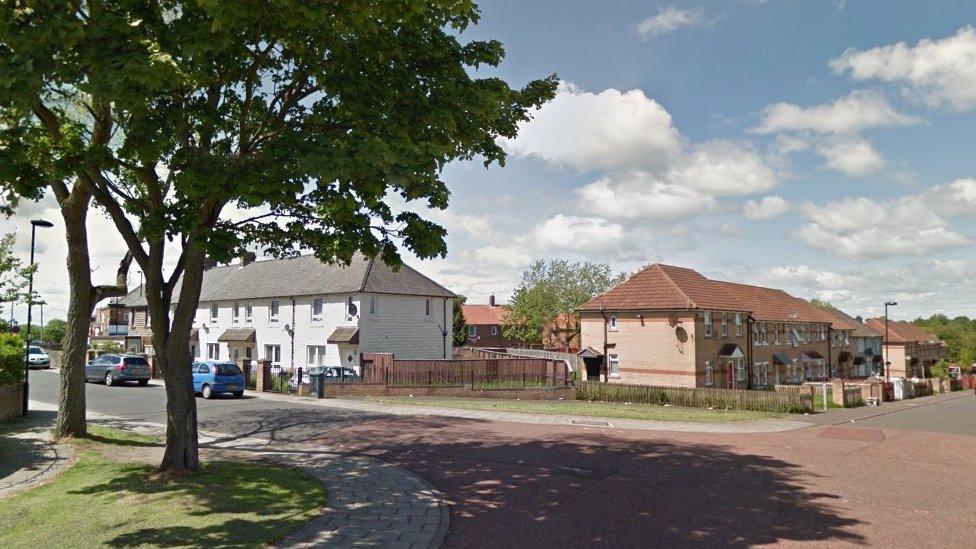
- Published22 August 2017
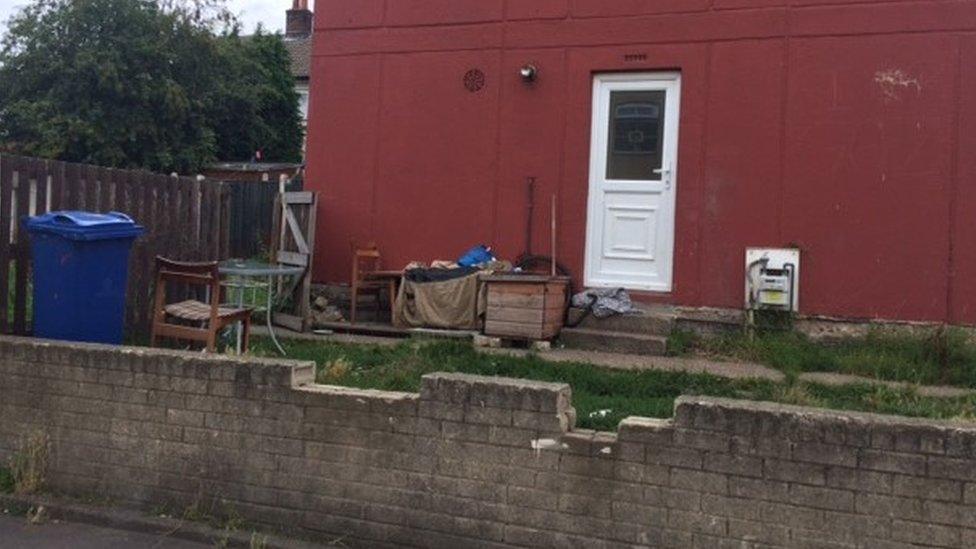
- Published20 October 2016
